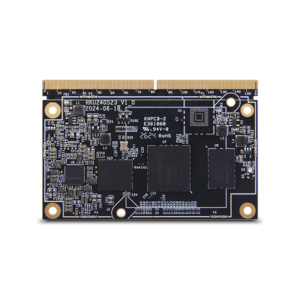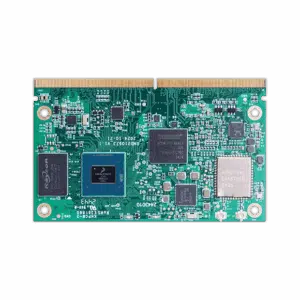Accelerate Development with Geniatech's ARM & RISC-V Based Pc On Modules
Accelerate Development with Geniatech's ARM & RISC-V Based Pc On Modules
Blog Article
Accelerate Growth with Geniatech's ARM & RISC-V Based Computer On Modules
Embedded applications are becoming increasingly varied, challenging variable and scalable alternatives to meet their evolving needs. This really is where system on modules come right into play. These small, ready-to-use embedded programs give you the building blocks for developers to produce high-performance, customized answers with ease.

Why are computer-on-modules gaining so significantly traction in the embedded systems market? The clear answer is based on their scalability and effectiveness, creating them the go-to choice for industries from professional automation to synthetic intelligence. Below, we have a sooner go through the significance of CoMs and how they're surrounding the continuing future of stuck applications.
What Are Computer-On-Modules?
Computer-on-modules (CoMs) are small, self-contained processing techniques that include important components such as for example processors, memory, interfaces, and os's onto just one module. Built to function as primary of a custom software, they could be paired with a company table to increase functions and conform to particular use cases.
CoMs give modular alternatives, removing the need for engineers to create a processing core from scratch. Alternatively, they can dedicate work to innovating other aspects of the applying, which eventually boosts time-to-market while reducing growth costs.
Why CoMs Are Revolutionizing Stuck Purposes
1. Scalability Without Overhaul
Scalability is one of the standout advantages of CoMs. Hardware designers can target multiple efficiency degrees by trading modules, as a result of standardized panel layouts. This modular approach eliminates the prerequisite of redesigning hardware for each performance tier. Whether for low-power IoT units or high-performance machine learning programs, CoMs present unparalleled flexibility.
2. Reduced Growth Time
Time-to-market is often critical for industries innovating in fast-moving environments. CoMs streamline this technique by adding probably the most critical research things right into a pre-tested module. This permits engineering teams to target on developing copyright boards or establishing pc software, rather than managing every aspect of the hardware.
3. Space Performance
Small size is yet another significant feature of CoMs. Provided the integration of multiple parts into a simple, small form component, these adventures are ideal for applications where space is at a premium, such as medical gear, robotics, and customer electronics.
4. Help for Sophisticated Features
To generally meet the needs of contemporary applications, CoMs often incorporate help for cutting-edge systems such as for instance 5G connection, GPU speed, and real-time knowledge processing. They permit developers to gain access to these abilities with no difficulties of developing complicated equipment from the floor up.
Industries Benefiting from CoM Answers
The flexibility of computer-on-modules assures their presence across a variety of industries. A few of the critical groups that benefit include:
1. Industrial Automation
CoMs give trusted and scalable computing energy for process get a grip on, robotics, and real-time tracking in commercial environments. Their compatibility with high-speed connectivity enables seamless integration into Industry 4.0 ecosystems.
2. Medical Technology
Purposes like patient checking, diagnostic equipment, and imaging programs involve detail, reliability, and high-performance computing. CoMs offer many of these, with the added benefit of small styles for space-constrained devices.
3. Synthetic Intelligence
CoMs improved for GPU efficiency are a well known selection for AI-powered applications like edge processing, face acceptance, and sensible monitoring systems. They help efficient inference and real-time information analysis.

4. Automotive Programs
Contemporary cars demand stuck solutions for infotainment programs, ADAS (Advanced Driver Guidance Systems), and diagnostics. CoMs meet these needs by providing consistent efficiency, longevity, and reliability.
The Potential of Embedded Computing
The continuing future of embedded computing depends greatly on scalable and modular solutions. With raising need for advancement across all sectors, CoMs may remain an integral enabler for organizations striving to keep prior to the curve. Their power to reduce difficulty, improve scalability, and shorten development time makes them a vital portion in the toolkit of electronics engineers.
For organizations seeking to develop high-performance programs without compromising on progress pace or quality, purchasing computer-on-modules is without question a part of the right direction. Report this page